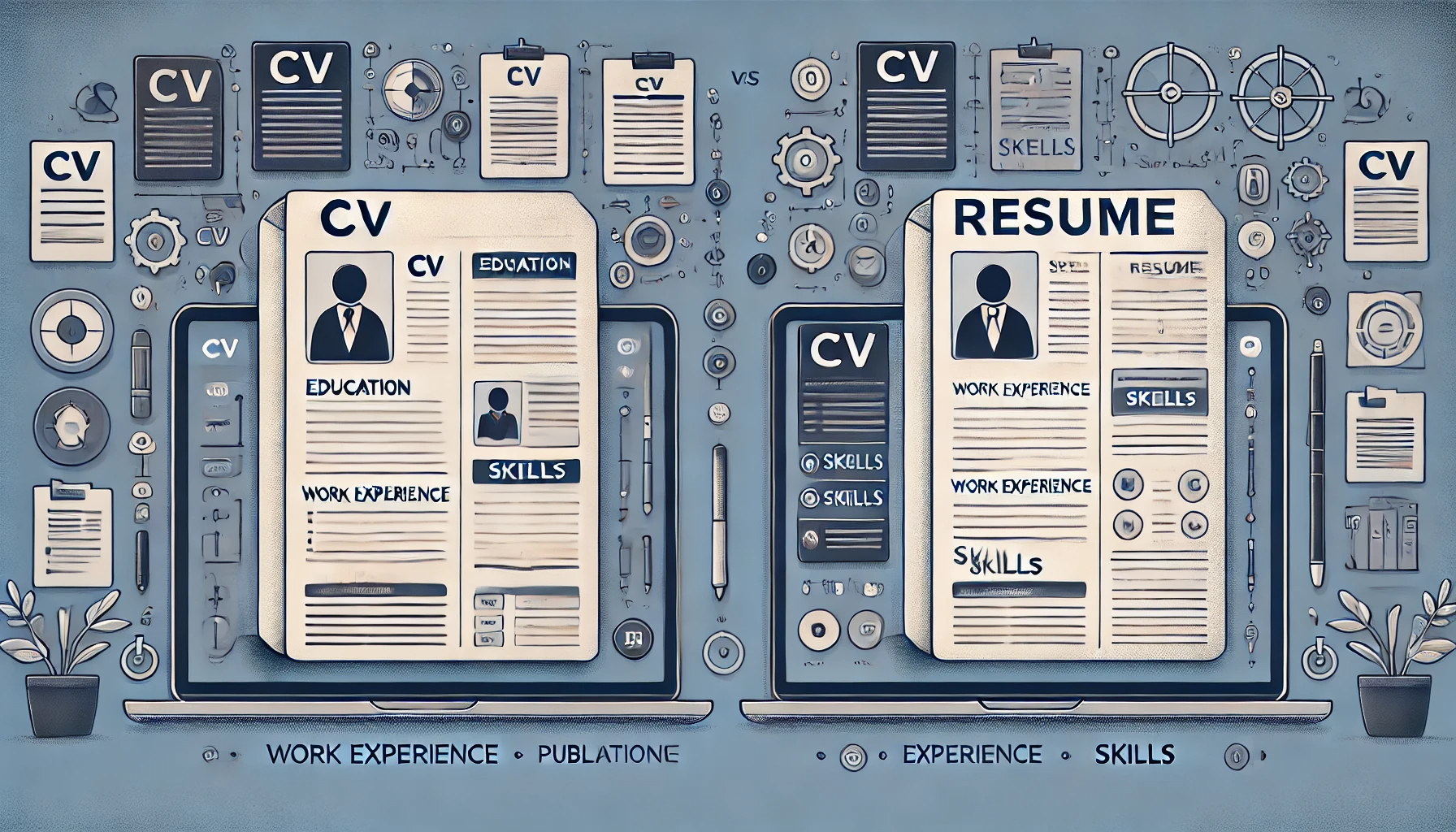CV vs Resume: What’s the Difference and When to Use a Resume Maker
Introduction
The words “CV” and “resume” are many times used interchangeably in job applications, but a CV is a different kind of document. In order to customize your application to specific job markets and industries, it is important to know the difference between a CV (Curriculum Vitae) and a resume. We will be introducing both documents, discussing their purposes and how a resume maker can make the making of these vital job application items easier.
What is a CV?
A CV (short for Curriculum Vitae) is a longer document that details your academic and professional history. This generally would have sections like:
Personal information
Education (degrees, certifications and courses)
Professional History (less detail, usually not in chronological order)
Publications, research (if applicable)
1 Awards, honours and membership
Technical, Language & Soft Skills
A CV is much used in academia, science, medicine etc. This is normally a very long document, sometimes running to several pages, that outlines all your qualifications and experience in great detail. CVs often are fairly fixed once created, with new achievements being added to it over time.
Common Uses for a CV:
Academia (Eg: Professors and researchers)
Scientific and medical fields
If not that high level > Grants, Scholarships and Research Opportunities
International positions, particularly in EMEA (Europe, Middle East & Africa),Outside U.S. Jobs
What is a Resume?
Your resume is a brief document that details your skills, work experience, and qualifications in a specific field. A CV will give the full history of your career and a resume is customized to that job you are applying for, containing relevant information only. Recommended For You 1-2 page resume that usually consists of:
Contact information
A short summary or objective
Relevant work experience
Key skills
Education
A certification (if any) a training oracticulum(s) (as applicable).
Your CV is a snapshot of your qualifications, meant to be quickly reviewed by employers. Most of us know this as a “cover-letter” and the idea is that it is prepared individually for each Application to explain how you are strong person for this specific job.
Common Uses for a Resume:
Trade and corporate jobs
Entry-level roles
North American (U.S. and Canada) Jobs, Australian Jobs and Some Asia Industries
Positions in need-to-know, cut-and-dry info
When to Use Each
Use a CV When:
Academic, research or scientific.
You are looking to apply for a role in one of the countries which favor CVs, such as anywhere in the UK or Europe or Africa.
You are in a highly technical or skill-specific field and will need to go into depth about your professional and educational experience.
Use a Resume When:
Corporate, technical or creative jobs where concise and coherent sentences are necessary.
The job post is very specific that it should be a resume
You want to do work in the US and/or Canada or other regions where resumes are more common.
How A Resume Maker Simplifies Both
Whether you need a resume or cv, a resume maker can help. Here’s how:
Customized Templates for Each Document
A good resume maker has pre-made templates for both resumes and CVs. These are templates that make sure your document or information is structured in the appropriate way to present it in a professional style.
Personalized for Specific Industries or Jobs
With resume makers, you can tailor your CV or resume for individual job applications so that the most pertinent information is showcased. With a few clicks, you can change sections, order experiences and alter formatting.
User-Friendly Interface
A resume maker can be a time-saver for people who are new to writing or formatting professional documents. Users are shown step by step, exactly what they need to input and where with the intuitive interface.
Export Options
After you have finished composing your CV or resume, most of the resume makers are capable of exporting the file in various formats like pdf or word thus guaranteeing that you can send your application in a suitable form.
Conclusion
When to use a CV or resume will be dependent on your location, career field, and the specific opening you are applying for. While CVs are in the affordable academic lodge, for those corporate job ethical motive, resumes is this way you go.
You can create these two files in Professional and Tailored way with the help of resume makers imposing your changes up to job application needs. As competition in the job market remains fierce for both the corporate world and academia, an online resume maker becomes a necessary tool to assure you will have top-of-the-line application materials.









